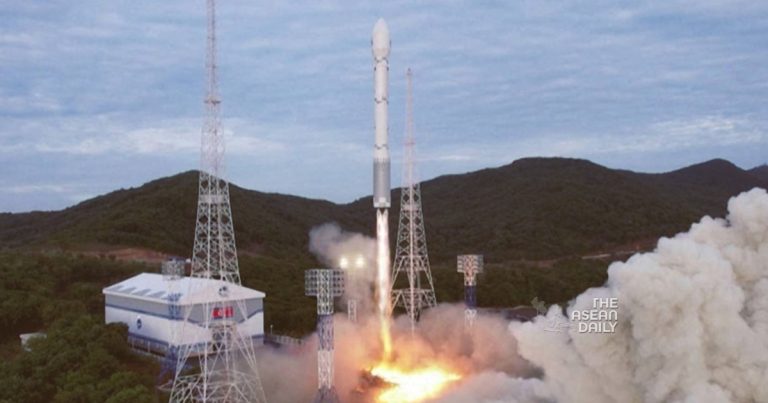24-8-2023 (PYONGYANG) North Korea’s latest attempt to put a spy satellite into orbit has failed, according to state media. This comes just months after Pyongyang’s first launch of a similar nature crashed into the ocean shortly after takeoff.
North Korean leader Kim Jong Un has prioritized the development of a military surveillance satellite, claiming that it is necessary to counterbalance the growing regional activities of US forces.
The official Korean Central News Agency reported that Pyongyang’s National Aerospace Development Administration conducted the second launch of the reconnaissance satellite Malligyong-1 early Thursday. However, the launch failed due to an error in the emergency blasting system during the third-stage flight. The report downplayed the issue, stating that it was not a significant problem and pledged to make a third attempt in October.
South Korea’s Joint Chiefs of Staff confirmed the launch, stating that it detected the purported space rocket flying through international airspace over the Yellow Sea at around 3:50 am. The South Korean government held a National Security Council meeting, condemning both the latest launch and Pyongyang’s previous attempt in May. They criticized North Korea for squandering resources on reckless provocations while blaming lower officials for the dire economic situation that is leading to starvation and death among its people.
The launch was initially reported by the Japanese government, which described it as “extremely problematic” and issued a brief warning to residents in the southern Okinawa region to take cover. Japan had been informed by North Korea’s coast guard that the launch would occur between August 24 and 31, prompting Tokyo to deploy ships and activate its PAC-3 missile defense system.
The launch comes shortly after the leaders of the United States, South Korea, and Japan met at Camp David and coincides with the start of major US-South Korea joint military drills known as Ulchi Freedom Shield. These annual exercises, which always anger Pyongyang and have previously been targeted by North Korean hackers, will continue until August 31.
Relations between North and South Korea are currently strained, and diplomatic efforts to discuss Pyongyang’s denuclearization have failed. Kim has declared North Korea an “irreversible” nuclear power and has called for increased arms production, including tactical nuclear weapons.
While the failure of the launch was not entirely unexpected, experts warn that North Korea is likely to persist until it succeeds. Analysts believe that the engineers will learn from these failures and eventually achieve a successful launch.
“Space is hard,” said Joseph Dempsey, a researcher at the International Institute for Strategic Studies, adding that the flight progression in this attempt was an improvement compared to the previous one.
Ankit Panda, a US-based analyst, stated that it is expected that North Korea will continue to iterate toward a successful launch. Jeffrey Lewis, a non-proliferation expert at the Middlebury Institute of International Studies, noted that the third stage is a common failure point but emphasized that engineers learn from failure. Soo Kim, a policy practice area lead at LMI Consulting and former CIA analyst, commented that maybe the third time will be the charm for Kim.




